Honduras’ president, now embroiled in a major corruption scandal, was elected under severe oppression against other candidates. Dana Frank writes on why the U.S. must stop funneling money to Honduras for repressive militarization and “free trade” projects that sacrifice labor and environmental standards in favor of multinational corporate hegemony. Obama must start treating its president like the corrupt ruler he really is.
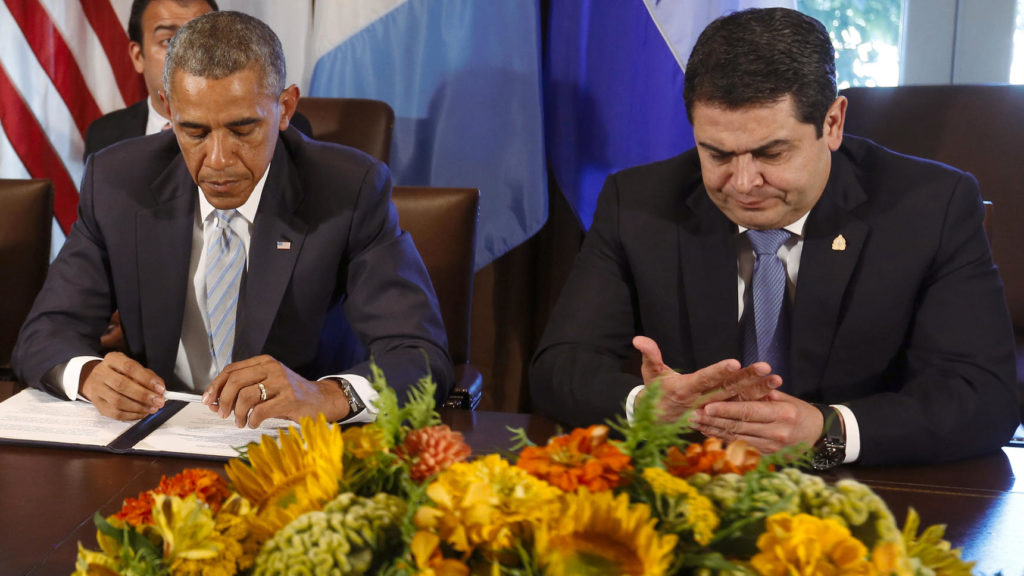

Just Like Old Times in Central America
By Dana Frank, Published in Foreign Policy
As public debate over undocumented, unaccompanied children arriving at the U.S. border erupted last summer, new Honduran President Juan Orlando Hernández suddenly emerged as a heroic figure in the U.S. media — portrayed as a dedicated public servant protecting his country’s children while also promoting its economy and bravely addressing its security crisis. Time magazine even ran a big “exclusive” interview with him in July 2014, casting Hernández as a noble crime fighter.
But quite to the contrary, Hernández is advancing a dangerous militarization of domestic policing and at the same time failing to address vast corruption inside the police force. In the past six years he has proven himself to be a terrifying thug. Now, a little more than a year into his presidency, it’s clear he is perpetuating an ongoing human rights crisis while countenancing a cesspool of corruption and organized crime in which the topmost levels of government are enmeshed.
Yet despite overwhelming evidence of Hernández’s dangerous record on human rights and security, the Obama administration has decided to lock down support for his regime, and even celebrate him. U.S. development, security, and economic funds are pouring into Honduras, and the White House is going full-court press to push for hundreds of millions more — even as Hernández consolidates his power in what the united opposition is now referring to as a dictatorship.
Hundreds of tear gas canisters were fired into the Caribbean North Coast community of Puerto Castilla, Trujillo, a coastal fishing community populated primarily by Afro-indigenous Garifuna, Miskito and Mestizo people. The roughly 500 security force members violently dispersed a peaceful protest against the National Port Authority whose main users are Dole Fruit Company and the US Military. The issue was fulfilling the promise of potable water and local employment. This, an area proposed by as a Charter City. — Greg McCain, UpsideDown World
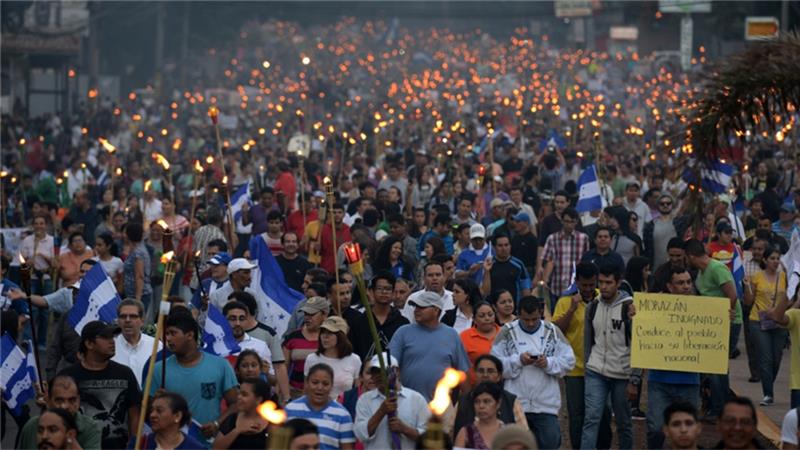

While Obama has made stellar progress on Cuba — finally opening the door to diplomatic relations and signaling a willingness to turn away from Cold War rigidity — in Honduras he is sending a very different and dangerous message to the region: The United States is willing to enthusiastically back a repressive regime in order to solidify and expand U.S. military and economic power.
The Obama Administration is turning a blind eye to what’s going on in Honduras, choosing to shore up Hernández in a pattern that tragically replicates U.S. support for repressive regimes in Central America throughout the 20th century.
Juan Orlando Hernández has built a sordid track record both as a longtime member of Congress and since ascending to the presidency. In June 2009, he chaired a key congressional committee that endorsed the military coup that deposed democratically elected President Manuel Zelaya.
In December 2012, while president of Congress, Hernández deposed four judges on the Supreme Court and in 2013 he led the illegal appointment of a new attorney general. Since then, he has forced all the country’s daily newspapers to toe his line, and his National Party has largely silenced opposition in the Honduran Congress by not allowing debates and packing formerly bipartisan committees.
Even the election that put him into office was marred by reports from international observers of raw vote-buying, violent intimidation of voters, opaque vote-counting procedures, and the assassination of over 30 political opponents and activists of the opposition during the campaign season. Hernández now controls almost all the institutional reins of power in the country. And since assuming the presidency in January 2014, he has built his power through an array of threats and Machiavellian maneuvers that make House of Cards look like a fourth-grader’s birthday party.
Honduran politics have long been thick with corruption and malfeasance. Plagued by drug traffickers, organized crime, and gangs, the country’s political system is locked in by a handful of elite families who for decades have controlled its media and most of its economic resources. But the 2009 coup opened the door to vast criminality. Zelaya, elected in 2006 and himself a member of the traditional elite, had pivoted mildly leftward, supporting an increase in the minimum wage, buying oil from Venezuela, recognizing Cuba, and blocking privatizing power grabs within Honduras. When in April 2009 he placed an opinion poll on the ballot for that June — completely legally — asking if voters wanted a constitutional convention, his opponents seized the opportunity to claim out of whole cloth that he was doing so to gain a second term. On June 28, 2009, the military packed Zelaya on a plane in his pajamas and dumped him in Costa Rica.
The United States should vigorously support a U.N.-sponsored commission on impunity modeled on the International Commission Against Impunity in Guatemala, and ensure that the commission remains free of Hernández’s influence.
The coup, itself a criminal act, led to the near-complete degeneration of the rule of law in its aftermath. Large portions of the judiciary, public prosecutors, and parts of Congress are now allegedly riddled with corruption and linked to organized crime and drug trafficking. In December, the Inter-American Commission on Human Rights confirmed a stunning impunity rate of 95 to 98 percent.
Police corruption, widespread before the coup, has escalated dramatically since, and continues unabated under Hernández. In 2011, police killed the son of Julieta Castellanos, president of the country’s biggest university. In 2012 the Associated Press revealed that the national director of the police, Juan Carlos “El Tigre” Bonilla, brought in supposedly to clean up the police, was himself a documented death squad leader in 1998 to 2002, when “mano duro” policies attempted to crack down on gangs by widely repressing alleged members. In 2013 the AP further documented contemporary death squad killings by the Honduran police. By August 2013 a government commission charged with cleaning up the police admitted that 70 percent of the police were “beyond saving.” InSight Crime, a Washington, D.C.-based foundation that tracks organized crime, reported in a 2014 Executive Summary that “a series of powerful local groups, connected to political and economic elites … manage most of the underworld activities in the country. They have deeply penetrated the Honduran police.”
The Honduran government’s answer to the deeply corrupt police has been to send in the military to take over domestic policing, despite the constitution’s explicit ban on military involvement in domestic police work except in emergencies. Beginning in early 2012, Hernández’s predecessor, Lobo, began dispatching the military to patrol the big cities and to guard airports, prisons, and tourist zones. The military even took over whole neighborhoods, terrifying residents.
Hernández then aggressively expanded Lobo’s militarization, building his 2013 campaign around the promise of “a soldier on every corner,” and once in office establishing a military line of command over a broad swath of domestic policing. In 2013 he led the creation of a new, rapidly expanding military police that now counts at least 3,000 officers who answer to the military and today guard not just the prisons, airports, and neighborhoods, but also schools, buses, and ubiquitous checkpoints all along the highways. On Dec. 15, Hernández named Julián Pacheco Tinoco, the director of military intelligence, as his new minister of security overseeing the police, even though Pacheco was an active-duty general at the time. Most aggressively, Hernández recently pushed the Honduran Congress to change the constitution to make his military police legal, albeit unsuccessfully.
Hernández’s new military police have swiftly established their own terrifying record of human rights abuses. On May 8, according to Amnesty International, a state security vehicle deliberately rammed the stationary car of José Guadalupe Ruelas, the director of Casa Alianza and the country’s most prominent advocate for children, who had just criticized the government for failing to protect children, charging that corruption and impunity were preventing the implementation of multiple laws. Military police then arrested and brutally beat him. Five days later, they surrounded, beat with batons, tear gassed, and ejected 35 Congress members of the leading opposition party, LIBRE, from the main hall of Congress. On Nov. 22 a young woman waiting for her bus outside San Pedro Sula was reportedly kidnapped and then raped by eight members of the military police. No one has been arrested or charged in any of these cases.
A bald cultural celebration of militarism is spreading as well. This past Independence Day, Sept. 15, 2014, TV stations and newspapers displayed baton twirlers, parades of little children, and a stadium full of parents and their children cheering as unit after unit of the armed forces and military police marched by in lockstep, many of their faces covered by black masks. Perhaps most alarmingly, a new official program called “Guardians of the Homeland” has been launched to explicitly indoctrinate children from 5 to 15 into military culture and values, and has already graduated 1,500.
As he has deployed all this, Hernández is a far more brutal and Machiavellian figure than his predecessor, and has spent his time in office so far consolidating one-party rule with an iron fist. The one branch of government he doesn’t entirely control is the Congress, where opposition is ferocious — but almost always thwarted through a variety of maneuvers in violation of regulations and historic norms. His National Party only counts 48 out of 128 total seats, while a new center-left party, LIBRE, and two far-right parties, the traditional Liberal Party and the new Anti-Corruption Party, control almost all the rest. Hernández’s party, though, permits little debate. On Dec. 28, all three of the other large parties plus a tiny additional party issued an unprecedented joint statement declaring unity “against the installation of dictatorship and in defense of the citizenry and its constitutionally guaranteed rights.”
STORY: Lost White City “Discovered” in Honduran Jungle?
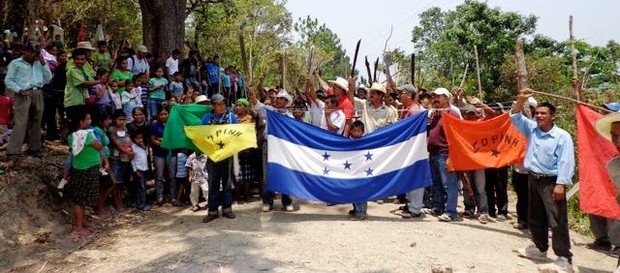

If the vicious, anti-democratic record of Hernández’s regime is so clearly documented, then why is the Obama administration celebrating the regime and looking the other way at its militarization and human rights abuses? The White House, it appears, is aggressively locking in support for the current Honduran government in order to solidify and expand the U.S. military presence in Central America, while serving transnational corporate interests in the region.
After the 2009 military coup, the United States moved aggressively to stabilize and consolidate the post-coup regime, in order to ensure a regime loyal to the United States and to corporate interests, and to send a message to the democratically elected center-left and left governments that had come to power in Latin America in the previous 15 years that they could be next. U.S. police and military funding for Honduras increased in the years that followed, under the pretext of fighting drug traffickers — who have flourished in the post-coup free-for-all of criminality.
The crisis of unaccompanied children at the border, rather than calling into question U.S. support for a destructive regime, has resulted in an even tighter relationship between the United States and the Honduran government and in potentially increased funding for the regime and the elite interests that benefit from it. Exact numbers for 2014 and 2015 are not available — there’s little transparency for U.S. security funds — but in 2013 the United States provided at least $27 million for the Honduran military and police, an increase over each of the previous three years. On Jan. 29, the White House requested a whopping new $1 billion in aid to Central America, a big chunk of which is destined for Honduras and its security forces.
The U.S. Congress, by contrast, has vigorously and repeatedly criticized the Obama administration’s support for the regime and its security forces, in light of the human rights abuses. Twenty-one senators, led by Benjamin Cardin (D-Md.), signed a June 2013 letter to Secretary of State John Kerry questioning support for the Honduran police and military. In May 2014, 108 members of the House of Representatives, led by Rep. Jan Schakowsky (D-Ill.), signed a letter challenging the State Department’s support for Honduran security forces. The Consolidated Appropriations Act of 2015, for the fourth year in a row, placed human rights conditions on a portion of police and military aid to Honduras. Most recently, at hearings on Feb. 25 before the Senate Committee on Appropriations and Senate Committee on Foreign Relations, Sen. Cardin and Sen. Patrick Leahy (D-Vt.) assertively questioned Secretary of State John Kerry’s promotion of the new funding plan for Central America.
By contrast, top U.S. military and diplomatic figures have echoed the administration’s whitewashing of human rights abuses. Commander John Kelley of the U.S. Southern Command on June 2 declared that the Honduran government’s commitment to fighting crime was “impressive” and that its work in the first few months of Hernández’s presidency was “incredible.” U.S. Ambassador James Nealon, who arrived in August straight from a two-year posting at Kelly’s side, has yet to make a peep publicly in criticism of the militarization or the corrupt police. In his first public interview, he chose to praise Hernández for a “magnificent” recent speech at the United Nations. His statement on International Human Rights Day, Dec. 10, enumerated the diverse sectors he had met with but made no concrete references to human rights problems within Honduras.
In collaboration with the governments of El Salvador and Guatemala, Hernández has been aggressively promoting a September 2014 “Plan of the Alliance for Prosperity in the Northern Triangle.” Developed in collaboration with the Inter-American Development Bank, the plan proposes to address the region’s economic crisis as well as widespread violence. Its actual content, though, will only exacerbate the problems, since it focuses on infrastructure development of the very economic sectors that are already producing poverty-level jobs in export processing zones and tourism.
The Obama administration’s model for economic development should emphasize labor rights, promote a diverse industrial sector generating good, skilled, well-paying jobs, and support diverse, sustainable agriculture development that supports the land rights of campesinos and indigenous peoples.
STORY: Garifuna Culture in Honduras: Dancing in a Changing World
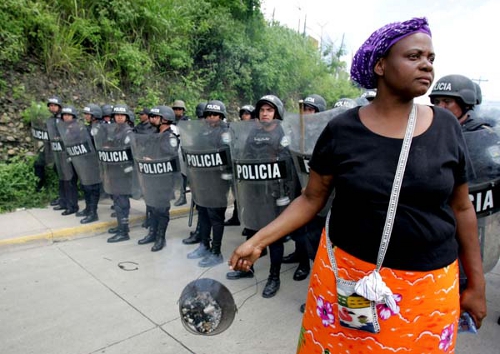

Overall, the plan rewards the very elite and transnational corporate interests whose policies and practices have produced the crisis of poverty and security the proposal offers to address. It makes no mention of grave issues in Honduras, not just the Honduras’s current militarization but also one-party rule, and mass layoffs of government workers by Hernández’s government. Perhaps most disturbingly, it only briefly mentions the question of human rights at all, and then only regarding human trafficking and prisons — completely omitting the country’s widespread human rights crisis since the coup, which includes repression of journalists, LGBTI people, campesinos, indigenous and Afro-indigenous people, women, and the opposition, not to mention the abuses committed by the government itself — all exhaustively documented by Honduran and international human rights observers.
The plan even supports infrastructure for the so-called “Model Cities” project in the Choluteca region on the Gulf of Fonseca — a terrifying hyper-neoliberal proposal that abrogates the Honduran constitution and the country’s rule of law altogether, since promoters would be free to write their own laws and sign treaties with foreign powers, and Honduran law would not apply. Grover Norquist, the Tea Party leader, sits on the top committee of 21 — which only includes three Hondurans — empowered to oversee the project. Norquist’s involvement and that of other experienced advisors from the U.S. far right is just one indication of the way international neoliberal investors and the U.S. business press have been salivating at the idea at the idea of the Model Cities.
With the Canjel Dam already under construction [in violation of ILO Convention 169 with no public consultation or environmental analysis], one must wonder, why the threats against Berta Caceres and COPINH? The reality is that much more is at stake than just the small Canjel Dam. In fact, there are so many dam projects planned for the area it seems as if every river the Lenca people have carefully stewarded for generations will soon be dammed. — Brigitte Gynther in UpsideDownWorld
International economic institutions have also offered support for the Honduran government. In early December, the IMF announced a new $188.6 million loan to Honduras and the Inter-American Development Bank (IDB) offered a loan of $110 million. Together, the loans shore up Hernández’s near-bankrupt government while exacerbating the impoverishment of government workers through explicitly mandated mass layoffs and privatizations, including selling off the state-owned telephone and electrical companies and the port. Just as the loans were announced, the Honduran government declared that in 2015 it planned to dismiss 7,000 more public workers, as part of a 30 percent reduction of expenditures.
A portion of new U.S. funding is also directed at programs on the ground within Honduras, to address gangs and organized crime. But the efficacy of these projects, however well intentioned, is not clear, and without a comprehensive cleanup of the police — including its top hierarchy — or a rollback of the military, they land in an unregulated force field of corruption, crime, human rights abuses, threats, extortion, and assassinations.
Most broadly, a distinction needs to be made between U.S.-funded programs and U.S. policy. While tens of millions in development and other funds are flowing into Honduras to address symptoms, the larger policy of the Obama administration is to support the very regime that is responsible in many ways for countenancing, producing, and exacerbating the problems those programs are designed to solve.
U.S. policy in Honduras appears to be driven by larger strategic interests in pushing back against the center-left and left governments that have come to power democratically in Latin America in the last 20 years. The United States also wants to keep a lock on Soto Cano Air Base in Honduras, and is expanding the direct U.S. military presence in the region. The clear message that Obama, Kerry, and the Defense Department are sending, though, is that the United States welcomes an ever-deeper alliance with an established dangerous thug who has amassed dictatorial powers — while promoting a neoliberal economic model already well-proven to be disastrous not just in Honduras but throughout Central America, the hemisphere, and beyond. Just as Obama has taken a giant step forward in Cuba, in other words, he is saying something else far more chilling in Honduras.
The administration should immediately and publicly distance itself from Hernández and his regime. It should stop celebrating Hernández, demand the removal of the military from domestic policing, and cut all U.S. police and military funding. It should challenge IMF and IDB funding for Honduras, and re-examine the Central America Free Trade Agreement (CAFTA-DR), which, as the AFL-CIO underscores, has been destructive to the Honduran economy.
More positively, the United States should vigorously support a U.N.-sponsored commission on impunity modeled on the International Commission Against Impunity in Guatemala, and ensure that the commission remains free of Hernández’s influence. The Obama administration’s model for economic development should emphasize labor rights, promote a diverse industrial sector generating good, skilled, well-paying jobs, and support diverse, sustainable agriculture development that supports the land rights of campesinos and indigenous peoples. Above all, the United States should reframe its role in Honduras as one in defense of human rights and social justice, rather than against them.
Dana Frank is Professor of History at the University of California at Santa Cruz.



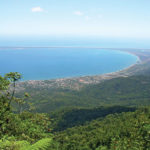
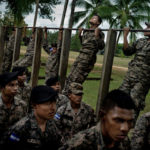
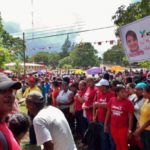
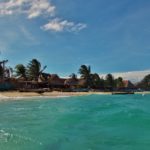


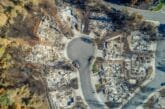
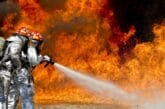


Pingback: Dictatorship in Honduras: US Reinvigorates "Banana Republic" Status | WilderUtopia.com
Pingback: Drug Trafficking in Honduras: Elite Family Arrested | WilderUtopia.com